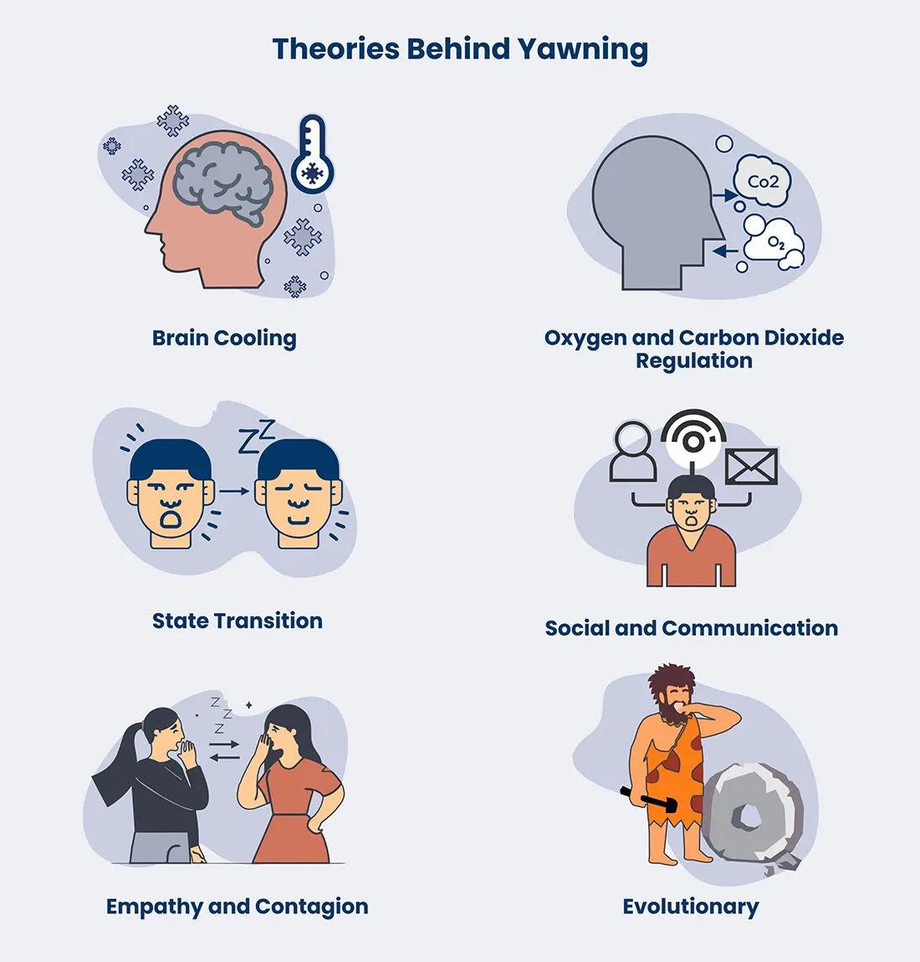Ever wondered why you yawn in the middle of a boring meeting or while binge-watching your favorite series late at night? You're not alone. Yawning is one of the most mysterious and contagious behaviors in humans. It turns out, yawning isn't just about being tired — it’s a complex physiological and psychological response deeply tied to our sleeping patterns, stress levels, and even the comfort of our pillow.
According to a 2023 study published in Frontiers in Neuroscience, yawning may play a vital role in brain temperature regulation and mental state synchronization within social groups — making it far more intriguing than we once believed.
What Is Yawning, Scientifically Speaking?
Yawning is an involuntary reflex where the mouth opens wide, and a deep breath is taken, followed by a slow exhalation. This is often accompanied by stretching or eye-watering.
Scientific definition: Yawning is a primitive brainstem reflex modulated by the hypothalamus and possibly triggered by neurotransmitters like dopamine, serotonin, and oxytocin.
Theories Behind Yawning
a. The Brain Cooling Hypothesis
This popular theory suggests that yawning helps cool down an overheated brain. When you're tired or mentally overworked, your brain temperature rises. Yawning helps bring in cool air and promotes blood flow, helping regulate brain temperature.
“Yawning functions to promote thermal homeostasis,” says Dr. Andrew Gallup, a psychologist who’s extensively studied yawning physiology.
b. Communication & Social Bonding
Yawning can also be socially contagious. Seeing someone yawn can trigger a yawn in you — even reading the word yawn might have just made you do it. This suggests it’s linked to empathy, social mirroring, and emotional intelligence.
c. Oxygen Regulation Theory (Debunked)
Previously, scientists believed yawning helped to increase oxygen levels and expel carbon dioxide. However, recent studies show this is likely not the primary reason we yawn.
Yawning and Sleeping Patterns: The Connection
Yawning increases as melatonin (the sleep hormone) rises in the evening and decreases as you wake up. Poor or inconsistent sleeping patterns, insomnia, or irregular bedtime can trigger excessive yawning during the day.
Quick Tip: Try using a supportive memory foam pillow and maintaining a fixed bedtime to reduce fatigue-related yawning during your daytime activities.
Yawning While Awake: What It Says About Your Lifestyle
If you're yawning excessively during daylight hours, it could signal:
High stress or anxiety
Poor sleeping posture
Low-quality bedding or an unsupportive pillow
Can Your Pillow Affect How Much You Yawn?
Yes! An unsupportive pillow can impact neck alignment and breathing, which leads to poor sleep and increased daytime tiredness — resulting in more frequent yawns.
Pro Tip: Use an orthopedic pillow or side sleeper pillow that suits your sleeping style (side, back, stomach) to enhance quality sleep and minimize yawning-related fatigue.
Surprising Facts About Yawning
Fetuses start yawning in the womb by 11 weeks of gestation.
Yawning is contagious among dogs and their human owners.
You don’t yawn when asleep — even if you're dreaming about being tired.
When Yawning Becomes a Red Flag
Excessive yawning (more than a few times per hour) could indicate:
-
Narcolepsy
-
Side effects of medications (e.g., SSRIs)
-
Neurological issues (e.g., multiple sclerosis, Parkinson’s)
If your yawning interferes with daily life, consult a sleep specialist or neurologist.
Conclusion
Yawning is far from a simple sign of sleepiness. It's deeply connected to our brain function, social behavior, and sleep quality. If you're yawning all the time, your body might be nudging you to fix your sleeping pattern or upgrade your pillow. So the next time you yawn — listen to your body. It’s whispering (or yawning) a message you shouldn't ignore.
FAQs
Q1: Can changing my pillow actually help reduce yawning?
A: Absolutely! A high-quality pillow improves sleep posture and breathability, reducing sleep disruptions — a common cause of daytime yawning.
Q2: Why do I yawn even after a full 8 hours of sleep?
A: This might be due to poor sleep quality, irregular sleeping patterns, or stress. Look into optimizing your bedtime routine, reducing screen time before bed, and evaluating your pillow and mattress.

